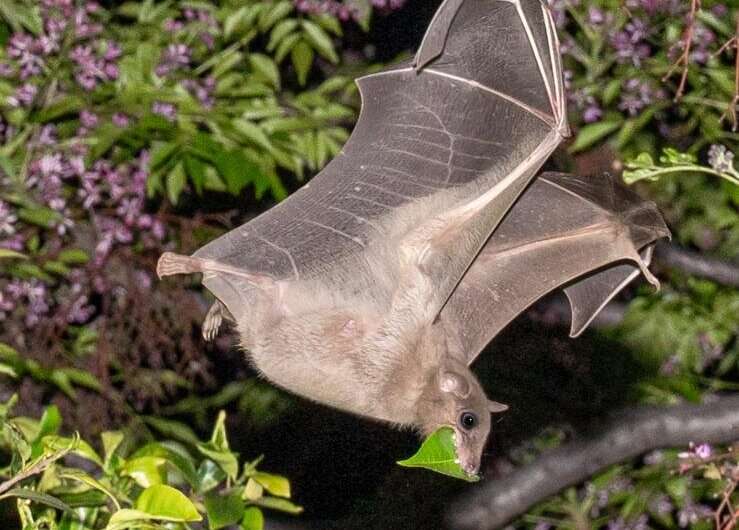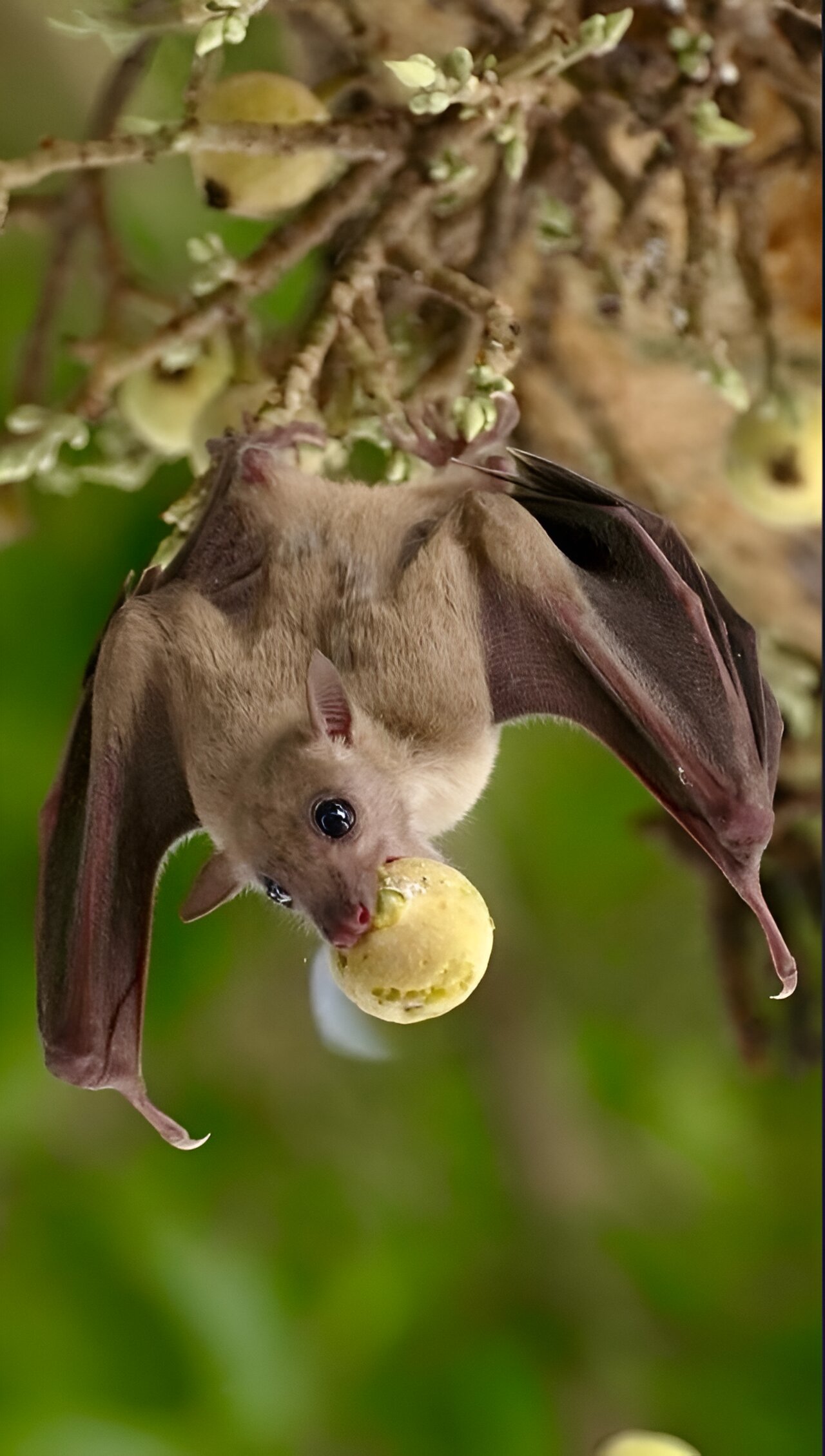Bat. Credit: Yuval Barkai
Researchers from Tel Aviv University have been tracking free-ranging Egyptian bats from a colony based in TAU’s I. Meier Segals Garden for Zoological Research to answer a long-standing scientific question: Do animals have high and complex cognitive abilities previously attributed only to humans? In particular, the study focused on the characteristics of episodic memory, mental time travel, forward planning, and delayed gratification, and came to some thought-provoking conclusions.
The article was published in Current biology.
The study was led by Prof. Yossi Yovel and Dr. Lee Harten of the School of Zoology and Sagol School of Neuroscience at Tel Aviv University. Other researchers included Xing Chen, Adi Rachum, Michal Handel and Aya Goldstein of the School of Zoology; Lior de Marcas of the Sagol School of Neuroscience; and Maya Fenigstein Levi and Shira Rosencwaig of the National Public Health Laboratory of the Israel Ministry of Health.
Prof. Yovel explains: “For many years, it was thought that the cognitive abilities to remember personal experiences (episodic memory) and plan ahead were exclusive to humans. However, more and more studies suggest that various animals also possess such abilities, but almost all of these studies were conducted under laboratory conditions, as field studies on these issues are difficult to conduct. To test these abilities in wild animals, we designed a unique experiment based on the colony of free-ranging bats in the I. Meier Segals Garden for Zoological Research at TAU.”
The researchers hypothesized that bats that rely on fruit trees for survival would need to develop the ability to track food availability both spatially (where are the fruit trees?) and temporally (when does each tree produce fruit?). As they navigate landscapes with numerous fruit and nectar trees, they would need to mentally track resources in order to revisit them at the right time.
To test this hypothesis, a small, high-resolution GPS tracker was attached to each bat, allowing its flight paths and trees visited to be documented over many months. The vast amount of data collected in this way was thoroughly analyzed, leading to some astonishing results.

Bat. Credit: Tel Aviv University
The first research question was: Do bats form a time map in their minds? To investigate this issue, the researchers prevented the bats from leaving the colony for different periods of time, from one day to one week.
Dr Harten says: “We wanted to see if the bats could sense that time had passed and behave accordingly. We found that after one day of captivity the bats returned to trees they had visited the previous night. However, after a whole week had passed, the older bats, based on previous experience, avoided trees that had not borne fruit in the meantime.
“In other words, they could estimate how much time had passed since their last visit to each tree, and knew which trees were short-lived and no longer worth visiting. Young, inexperienced bats could not do this, indicating that this is an acquired skill that must be learned.”
While the first research question looked at past experiences, the second was about the future: Do the bats exhibit future-oriented behavior? Are they able to plan ahead? To address this issue, the researchers observed each bat’s path to the first tree of the evening, potentially indicating plans made before they left the colony.
Researcher Chen Xing said: “We found that bats usually fly directly to a specific tree that they know, sometimes 20 or 30 minutes away. Because they are hungry, they fly faster the further away that tree is, suggesting that they are planning where to go. Furthermore, while focused on their chosen target, they will pass by other trees, even good resources that they visited yesterday – suggesting a capacity for delayed gratification. We also found that the first bats to leave the colony choose trees with fruits rich in sugar, while the bats that leave later go in search of protein.”
All these findings suggest that the bats plan their foraging trips before they leave the colony, and that they know exactly where they are flying and what kind of food they are looking for.
Prof. Yovel adds: “The cognitive gap between humans and animals is one of the most fascinating issues in science. Our study shows that bats are capable of a rather complex decision-making process regarding the three questions indicative of cognitive abilities: Where? (the location of each tree); When? (when the tree bears fruit); and What? (the nutrition it provides – sugar versus protein).
“Once again, we see that the divide is not clear-cut and that humans are not as unique as some think. Apparently, humans and animals are all on a spectrum, with almost all human abilities also found in animals.”
More information:
Lee Harten et al, Time-mapping and forward-looking behavior in free-ranging wild bats, Current biology (2024). DOI: 10.1016/j.cub.2024.05.046
Offered by Tel Aviv University
Quote: Wild bats found to have high cognitive abilities previously thought exclusive to humans (2024, July 1) Retrieved July 2, 2024, from https://phys.org/news/2024-07-wild-high-cognitive-abilities-previously.html
This document is subject to copyright. Except for fair dealing for private study or research, no part may be reproduced without written permission. The contents are supplied for information purposes only.
